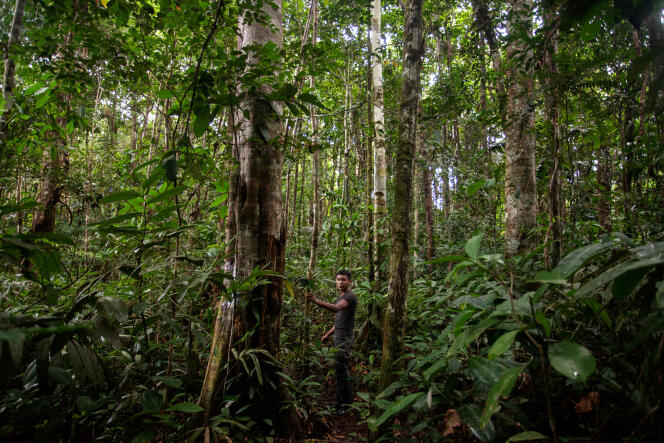


Governments can take action to halt deforestation. On a global scale, however, the political will is not yet shared widely enough for any hope of reaching the objective adopted at the COP26 climate conference in Glasgow (UK) of ending the phenomenon by 2030. This was the striking conclusion of the annual report on global tree cover loss, produced by the University of Maryland and the World Resources Institute (WRI).
Published on Thursday, April 4, data from the Global Forest Watch (GFW) shows that in 2023, "dramatic" progress in Brazil and Colombia was offset by increased tree cover loss in other countries. "The world took two steps forward, two steps back," said Mikaela Weisse, director of the GFW at WRI.
In 2023, tropical regions lost 3.7 million hectares of primary forests, the equivalent of 10 football fields per minute. This represents a 9% decrease from 2022. However, according to experts, the decline does not reflect a long-term reversal in the trend. Over the last 20 years, the planet has lost between 3 and 4 million hectares of tropical forests each year, and the 2023 tally is virtually identical to those of 2019 and 2021. "The consistency observed in 2023 is particularly discouraging as there are only six years remaining to meet the Glasgow commitment," they pointed out.
In November 2021, 145 leaders gathered at COP26 pledged to halt deforestation by the end of the decade. Among those heads of state, some in 2023 demonstrated their desire to turn their words into action. In Brazil, which remains the country most affected by tree cover loss, the rate of deforestation fell by 36% to its lowest level since 2015.
Since the return to power of President Luiz Inacio Lula da Silva in early 2023, a number of important decisions have been taken, such as the repeal of measures unfavorable to the environment and tighter controls. However, these positive changes are mainly focused on the Amazon. Other biomes that are just as important for biodiversity and the climate, such as the Cerrado and Pantanal, are instead suffering significant increases in deforestation.
Colombia is also taking a lead role, with its tree cover loss halved (down 49%) during the first year in office of left-wing environmentalist President Gustavo Petrothe. The country, which adopted a fossil fuel non-proliferation treaty at COP28 in Dubai (United Arab Emirates), will host COP16 on biodiversity at the end of October.
In Colombia, "the rate of primary forest loss increased significantly starting in 2016, coinciding with the country's peace agreement with the Revolutionary Armed Forces of Colombia (FARC) [which caused the Marxist guerrillas to leave certain areas, making them more accessible to land speculators]," said Weisse. Now, under the Colombian president's leadership, the "government is negotiating with different armed groups, with forest conservation an explicit goal of the discussions."
You have 45.38% of this article left to read. The rest is for subscribers only.
